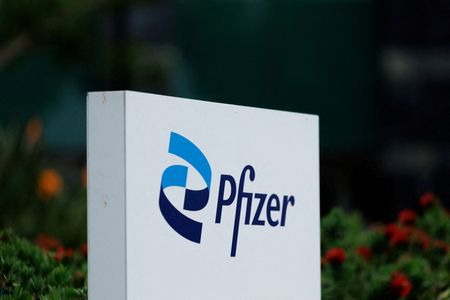By Sabrina Valle, Mrinalika Roy and Tom Hals
(Reuters) – Pfizer filed an antitrust lawsuit on Monday accusing Danish drugmaker Novo Nordisk of structuring its $9 billion bid for biotech Metsera to stall, not close, the deal, a tactic it said is designed to suppress competition in obesity drugs.
Pfizer agreed to pay up to $7.3 billion for Metsera in September. Last week, after Novo’s top investor seized control of its board, the company launched a rival bid that Metsera – its seventh since January – said was superior to Pfizer’s. It gave Pfizer until Tuesday to submit a higher offer.
Metsera’s board filed a letter with the Delaware court on Monday urging the judge to deny Pfizer’s request for a hearing on a temporary restraining order to block Novo’s bid. Metsera accused Pfizer of gaming the schedule by not suing sooner, when it knew of Novo’s bid on October 25.
Metsera said the latest lawsuit was an attempt by Pfizer to drive down its takeover price. The company in a statement said its board remains committed to protecting shareholder and patient interests and described Pfizer’s allegations as “nonsense,” adding that it will respond to the claims in court.
Novo on Monday said its proposal was compelling and exceeds Pfizer’s. “We closely adhered to all of the restrictions under the Pfizer merger agreement and are confident that the facts and the law are on our side,” Novo said in a statement.
Metsera is developing a new obesity drug that would have the benefit of monthly injections versus weekly injections required for wildly popular Wegovy from Novo and Eli Lilly’s Zepbound and Mounjaro.
Pfizer, which does not currently sell a weight-loss drug, is betting on Metsera to help it enter an obesity market some analysts forecast could soon reach $150 billion annually and offset falling COVID-related revenue and looming patent expirations.
Metsera is working on experimental therapies analysts say could generate $5 billion in sales.
PFIZER SAYS NOVO AIMS TO DELAY COMPETITION
Pfizer’s second complaint, filed in U.S. District Court in Delaware on Monday, alleges Novo Nordisk is using a 30-month “outside date” — the period before either party can terminate the merger — to delay Metsera’s entry into the market for obesity drugs that target the GLP-1 protein, currently dominated by Novo and Lilly.
Pfizer said its own deal with Metsera had a nine-month timeline and received early termination of antitrust review on October 31.
The Delaware court is expected to assign a judge to Pfizer’s case later on Monday, with a hearing on the company’s request for a temporary restraining order likely to be set for Tuesday, a person familiar with the matter told Reuters, adding that the court typically rules at or shortly after such hearings.
Pfizer claims Novo Nordisk’s bid is not a genuine acquisition attempt but a strategic maneuver to block Metsera from advancing its drugs in development and preserve Wegovy and Ozempic’s market share.
In the suit, Novo is accused of offering Metsera shareholders $6.5 billion upfront — before regulatory review — and tying the company to restrictive covenants that delay or prevent clinical progress.
While investors could see immediate returns from a deal, Pfizer warns that Novo could use the interim period to choke off funding, restrict hiring, and stall clinical trials for Metsera’s obesity drug candidates.
“Something is clearly rotten in the state of Denmark,” Pfizer wrote in its complaint — a pointed reference to Shakespeare’s Hamlet that underscores the company’s view of Novo’s motives following a recent board purge by its controlling shareholder.
On Friday, Pfizer asked the Delaware court to issue a temporary restraining order to block Metsera from terminating the agreement between the companies.
Metsera in its Monday letter, urged the court to deny Pfizer’s request to hold a hearing on Tuesday, arguing that Pfizer could increase its bid and then pursue litigation, or raise its bid after the Tuesday deadline.
(Reporting by Sabrina Valle in New York, Mrinalika Roy in Bengaluru and Tom Hals in Delaware; Editing by Caroline Humer and Bill Berkrot)











